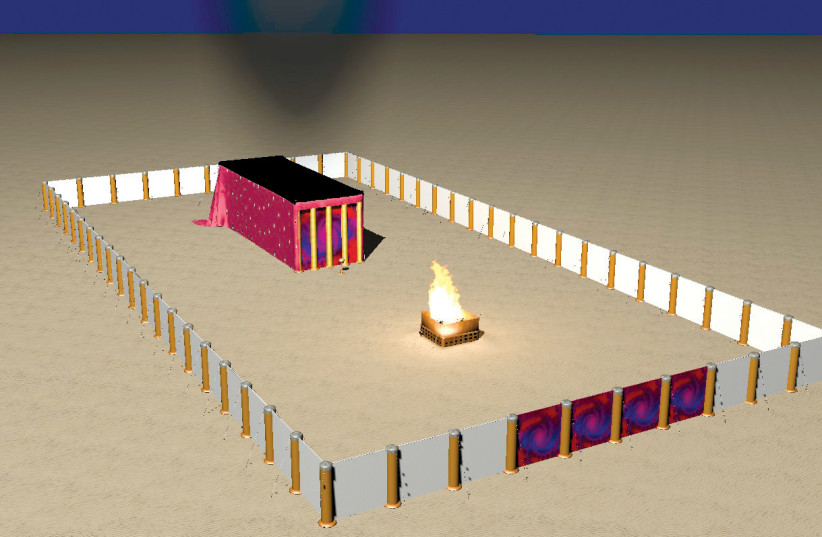After two months of a huge and complicated construction project, while encamped in the heart of the desert, the Children of Israel completed the detailed instructions for building the Mishkan (Tabernacle) they received from God, and turned to dedicating the temporary temple that was to accompany them through their desert journeys.
This week’s Torah portion – Parashat Pekudei – concludes the description of the building of the Mishkan, a description that’s spread over five portions.
At the end of the description of the construction work, the Torah states:
In accordance with all that the Lord had commanded Moses, so did the Children of Israel do all the work. Moses saw the entire work, and lo! they had done it – as the Lord had commanded, so had they done. So Moses blessed them. (Exodus 39:42-43)
Three times, the Torah repeats and emphasizes the fact that the Israelites did not change any of the detailed instructions given by God. Moses, amazed by this fact, blessed them with a special blessing mentioned in the book of Psalms:

And may the pleasantness of the Lord our God be upon us, and the work of our hands establish for us, and the work of our hands establish it. (Psalms 90:17)
We note that over the last two parashot, the Torah emphasizes again and again that things were done exactly “as the Lord had commanded Moses.”
Why was Moses so excited by the nation doing just as it had been commanded to do? And why does the Torah see the need to emphasize this? It should be an obvious thing, to follow the directions just as they were given by God, especially for something as lofty as building the Mishkan.
Again, at the beginning of Parashat Beha’alotcha in the book of Numbers, we find something similar. The Torah describes God’s request of Moses to instruct Aaron to light the menorah in the Mishkan. Immediately following this, the Torah says:
Aaron did so; he lit the lamps toward the face of the menorah, as the Lord had commanded Moses. (Numbers 8:3)
The great biblical commentator Rashi illuminates the emphasis insinuated by the language of the Torah:
This shows Aaron’s virtue that he did not deviate [from God’s command].
Again, we see a sense of wonder about Aaron not changing any of the detailed instructions given to him by God regarding lighting the menorah in the Mishkan. And again, we must ask: What is so special about this?
The answer lies in an understanding of human nature. As humans, we find it very difficult to do exactly as we are told. We like to do “about” as we are told. Why? Because if we do things exactly as we are told, we are seemingly negating our own independence and personality for the sake of the directions we were given. We want to feel like we contributed to the story. So, we like to do things “about,” and not “exactly,” as we are told.
In building the Mishkan, God asks the Children of Israel to follow His instructions exactly, and they did so. They took themselves out of the equation and fulfilled God’s will as it was, and for this they deserved praise.
But a difficulty arises by the Torah emphasizing this. Usually, with everything related to holiness and spirituality, we feel an even greater need to express our individuality. We sense our inner spirit that tells us how to act. We want to be connected and feel part of the spiritual act. But in the building of the Mishkan, we see that God wanted us to remove ourselves from the picture and do exactly as He commanded, to make God’s will – our will. As our sages said, “...do His will as though it were your will, so that He will do your will as though it were His” (Ethics of the Fathers 2:4).
At many crossroads in our private or religious life, we might face a dilemma: Should we interject our own will into the picture, or should we concede to God’s will. At such times, we should remember the great blessing inherent in following God’s will as it is. Exactly as it is. ■
The writer is rabbi of the Western Wall and Holy Sites.
